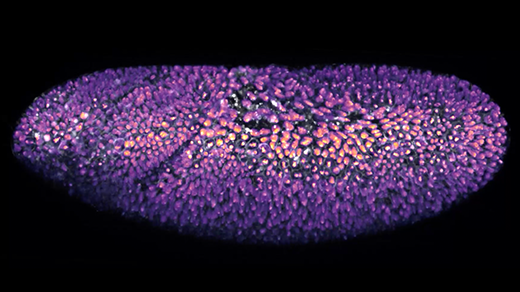Latest Articles
How Metabolism Can Shape Cells’ Destinies
A growing body of work suggests that cell metabolism — the chemical reactions that provide energy and building materials — plays a vital, overlooked role in the first steps of life.
Mollusk Eyes Reveal How Future Evolution Depends on the Past
The visual systems of an obscure group of mollusks provide a rare natural example of path-dependent evolution, in which a critical fork in the creatures’ past determined their evolutionary futures.
Cells Across the Body Talk to Each Other About Aging
Biologists discovered that mitochondria in different tissues talk to each other to repair injured cells. When their signal fails, the biological clock starts winding down.
What Makes Life Tick? Mitochondria May Keep Time for Cells
Every species develops at its own unique tempo, leaving scientists to wonder what governs their timing. A suite of new findings suggests that cells use basic metabolic processes as clocks.
How 3D Changes in the Genome Turned Sharks Into Skates
Changes in the 3D structure of their genome gave skates and rays their distinctive winglike fins and pancake flatness.
A Mutation Turned Ants Into Parasites in One Generation
A new genetics study of ant “social parasites” shows how complex sets of features can emerge rapidly and potentially split species.
Ants Live 10 Times Longer by Altering Their Insulin Responses
Queen ants live far longer than genetically identical workers. Researchers are learning what their longevity secrets could mean for aging in other species.
A Biochemist’s View of Life’s Origin Reframes Cancer and Aging
The biochemist Nick Lane thinks life first evolved in hydrothermal vents where precursors of metabolism appeared before genetic information. His ideas could lead us to think differently about aging and cancer.
Protein Blobs Linked to Alzheimer’s Affect Aging in All Cells
Protein buildups like those seen around neurons in Alzheimer’s, Parkinson’s and other brain diseases occur in all aging cells, a new study suggests. Learning their significance may reveal new strategies for treating age-related diseases.









